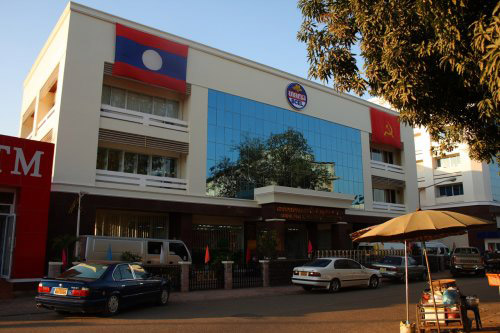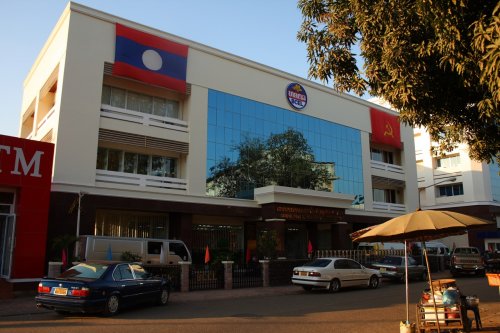No Decision Made On Proposed Purchase Of BCEL
Source: Vientiane Times
No decision has yet been made on the proposed purchase of a major stake in the Banque pour le Commerce Exterieur Lao Public (BCEL) currently held by the Ministry of Finance, the Prime Minister’s Office confirmed on Saturday.
The confirmation came after some members of the public mistakenly understood that the government would sell its 51 percent stake in BCEL – a leading Lao bank – to the Phousy Group.
On November 10, the Prime Minister’s Office issued a notice assigning the Ministry of Finance to work with the Bank of the Lao PDR and relevant bodies to study a proposal by the giant construction group to buy the 51 percent stake.
Some people misinterpreted the notice to mean that the government had already made the decision to sell.
A statement on the Prime Minister’s Office website on Saturday said the notice was merely a reflection of its role as a coordinator between the Prime Minister’s Office and other central state bodies.
“It is not a decision made (to sell) by higher authorities,” the post said.
In the November 10 notice issued on the advice of Prime Minister Phankham Viphavanh, the relevant bodies were told to consider the proposed purchase in line with the government’s decision to involve private companies in the management of state enterprises or create joint ventures.
The government made the decision after announcing that it would reform the management of state enterprises because of the inefficient way they operated.
Over decades, every government administration has invested heavily in state enterprises, hoping they would become a main source of revenue and key drivers of the economy.
But most state enterprises have performed poorly. Some have accumulated enormous debts, placing an added burden on the government, Prime Minister Phamkham told the ongoing 2nd ordinary session of the National Assembly (NA)’s ninth legislature.
He said the reform of state enterprises was “an important and urgent task”.
An indicators-based assessment of 41 state-run companies suggested that at least 10 were viable and could continue to operate as normal, but the rest needed to undergo reform, the government told an extraordinary session of the NA in August.
As part of the reform process, the government would consider which enterprises should be 100 percent government-owned, which ones could become a joint public-private venture, and which ones should be sold off.





